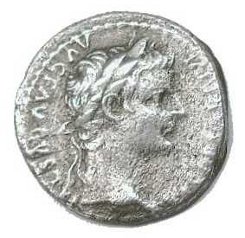The Zealots: Rendering Unto Caesar

If you are a believer in the Lord Jesus as your Savior, I ask you the following question: “Are you a Christian American or are you an American Christian?” You may answer with some bit of perplexity, “What’s the difference?” Well, pondering the answer to that question involves more than just playing a game with words. In the phrase “Christian American” the operative word is “American” and the modifier is “Christian.” In the phrase “American Christian” the operative word is “Christian” and the modifier is “American.” Is there a difference here worth noting?
For years now some patriotic Christians have proudly borne the title “Christian American” without realizing the subtle way in which they may unintentionally be denying their calling as “citizens of heaven” (see Phil. 3:20 and I Pet. 2:11). A true believer has been translated from this earthly “kingdom” into a “heavenly” kingdom (Col. 1:13). That does not mean that we should drop out of this world. We are to submit to the government, pay it our taxes and obey its laws. Jesus told to “render to Caesar the things that are Caesar’s” (Matt 22:21). Admittedly, it is not always easy to decide where the line is between our duty to the government and our duty to our Lord. But one thing we cannot deny—our allegiance first and foremost is to the Sovereign King of Heaven. That is why we are Christians who happen to be Americans (or Canadians or Israelis) not Americans who happen to be Christians.
It is encouraging to know that this is not a new problem but one that was faced by Jews and Christians in Biblical days as well. During the first century A.D., the relationship of a believer in the one true God to the ruling power, i.e. Rome, was an issue that divided the Jewish people who first heard the message of Jesus. Understanding this ancient problem may help us to more intelligently decide what should be our duty to our own “Caesar,” whatever be the country where we live.
Jewish political shifts
As is usually the case, an understanding of what led up to the political situation in the New Testament will help us to sort out the options facing a Jewish person as he or she listened to Jesus’ message. The height of glory for Old Testament Israelites was that period of the heady days of King David and his son, King Solomon, in the tenth century B.C. Even when the United Kingdom split in 930 B.C., the Kingdom of Judah continued in power until it all came crashing down in its destruction by the Babylonians in 586 B.C. The returning exiles under Zerubbabel were allowed a measure of freedom, but still remained a people subservient to another nation. Under the Persians and their Greek successors, any Jewish hopes of a renewed kingdom seemed to be only a pipe dream. The heroic rebellion of the Hasmoneans, prompted by Syrian persecution, did lead eventually to an independent Jewish kingdom. It was a kingdom, however, led not by a Davidic heir but by a priestly dynasty that began well but soon floundered in its own arrogance and worldliness.
Two of these Hasmonean brothers argued and fought for power so much that the new great power from the West, the Romans, finally stepped in and took control of Israel and Jerusalem in 63 B.C. That Roman rule was to continue well into the Christian era and eventually had to itself deal with the Christian message. Therefore, during the days when Jesus was born, a Roman Emperor was ruling little Israel as part of its huge empire. There were Roman soldiers everywhere, commanded by centurions, and all answered to a procurator who managed the entire realm from the port of Caesarea on the Mediterranean coast. The most famous of these procurators, especially to readers of the New Testament, was Pontius Pilate who ruled Judea from A.D. 26-36.
Davidic glory and Hasmonean heydays were only faint memories in the Jewish consciousness when the oppressive rule of a foreign power was a daily reality. Every Jewish person in Israel faced choices as to how they would respond to this situation. The spectrum of responses to that Roman rule provide us with some striking illustrations of how people in all ages and countries have related their faith to the political realities of their situation.
Will Varner Bio
Will Varner is Professor of Bible & Greek at The Master’s College. He earned a BA from Bob Jones University, MA from Dropsie College, MDiv and ThM from Biblical Theological Seminary and EdD fromTemple University. He blogs at DrIBEX Ideas.
- 5 views


Discussion